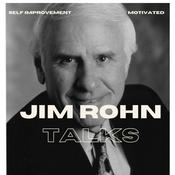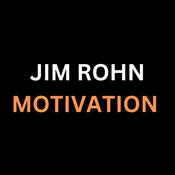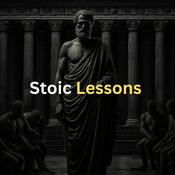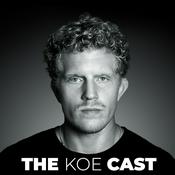23 episodes
- In this panel discussion, host Casandra Grundstrom engages with 5 researchers part of a project on assessing the Nordic readiness for the upcoming European Health Data Spaces (EHDS) regulation. As part of the Nordic Health Data Spaces (NHDS) project, we unpack the intentions of the upcoming regulation, and what this means for different stakeholders to navigate a complex policy landscape. We reflect on the technical feasibility of achieving the ambitions of the EHDS and under what conditions value can be realized beyond a portable patient. Finally, we discuss how education can act as an antidote for readiness to the EHDS and present the project-developed MOOC (Massive Open Online Course). The course is free and open to all to take, and takes the learner through the potential of the EHDS in transforming healthcare, research, and digital health.
References
About the project funder: https://www.interregaurora.eu/
MOOC: https://joy.oulu.fi/en/education-search/introduction-european-health-data-space-avoin-yo
DigiCampus: https://digicampus.fi/login/index.php
FinData: https://findata.fi/en/
Researchers
Minna Isomursu - University of Oulu, Finland
Line Linstad - eHealth Research Center, Norway
Prabhat Ram - University of Oulu, Finland
Kassaye Yitbarek Yigzaw - eHealth Research Center, Norway
Lars Öbrand - University of Umeå, Sweden - Host Casandra Grundstrom is joined by visiting researcher Olivia Benfeldt, Assistant Professor at Copenhagen Business School. Olivia is based at the Department of Digitalization, where her research focuses on how data is fundamentally reshaping business and society. Her work explores data governance as practice to examine frictions, dependencies, and possibilities in everyday organizational life. Olivia is particularly interested in data governance as a collective action problem, and how sociopolitical issues in situated work enable and constrain what can be done with data—and by whom. She currently leads the newly established Data Studies research theme at CBS and is involved in several projects investigating the making of large-scale governance. Her work has been published in journals such as Information Systems Frontiers and the Scandinavian Journal of Information Systems, as well as presented at international conferences including ECIS and SCIS.
In this episode, we unironically discuss research as a conversation. Who are we talking to when we write a paper? What does having a community mean? We explore these ideas and more with the theme of data governance as an undercurrent.
References:
Benfeldt, O., Persson, J. S., & Madsen, S. (2020). Data governance as a collective action problem. Information Systems Frontiers, 22, 299-313.
Benfeldt, O., Schroder, A., Zambach, S., Greve, M., Singh, R., & Gierlich-Joas, M. FROM CONTEXT TO AESTHETIC: A NORDIC PERSPECTIVE ON DATA STUDIES IN INFORMATION SYSTEMS. Forthcoming in SCIS, 2025.
PARMIGGIANI, E., & GRISOT, M. (2020). Data curation as governance practice. Scandinavian Journal of
Information Systems, 31(1). https://aisel.aisnet.org/sjis/vol32/iss1/1
Benfeldt, O., Zambach, S., Nyman, S., & Gierlich-Joas, M. (2024). Data Diplomacy as Governance Practice. ECIS.
Links:
https://irisscis.com/ Unfair ID – Guests Silvia Masiero and Tejas Kotha: A SocioTechs Crossover Episode
2024/10/26 | 42 mins.Host Casandra Grundstrom is very happy to participate in a crossover episode with the wonderful people from the Sociotechs Podcast Associate Professor Silvia Masiero and PhD Researcher Tejas Kotha. This is a special episode which focuses on Silvia's brand new book (out 26.10.24) about Unfair ID. Sociotechs host Tejas and myself (the IS DIGEST host) interview Silvia on the 14 year's in the making of her book and the stories she shares to demonstrate the injustice of identity in different case settings including food security systems, biometric borders, and algorithmic social protection. We further explore the power of these stories for researchers and to discuss core tenets of unfairness for identity, justice, and resistance. Our focus then shifts from criticisms of exclusion to what can be done about unfair ID, discussing how it could be fairer through design.
Quote from the book “This book has been, since the beginning, a hymn to hope: the hope that by understanding unfairness in digital ID, and the paths of its effects on people, a fairer world can be built for the digitally identified.”
References:
Cheesman, M. (2022). Self-sovereignty for refugees? The contested horizons of digital identity. Geopolitics, 27(1), 134-159.
Costanza-Chock, S. (2020). Design justice: Community-led practices to build the worlds we need. The MIT Press.
Jonnalagadda, K. (2024, September 21). Life without Aadhaar. Deccan Herald. https://www.deccanherald.com/india/life-without-aadhaar-3200235
Masiero, S. (2018). Explaining trust in large biometric infrastructures: A critical realist case study of India's Aadhaar project. The Electronic Journal of Information Systems in Developing Countries, 84(6), e12053.
Masiero, S. (2015). Redesigning the Indian food security system through e-governance: The case of Kerala. World Development, 67, 126-137.
Masiero, S., & Das, S. (2019). Datafying anti-poverty programmes: Implications for data justice. Information, Communication & Society, 22(7), 916-933.
Milan, S., & Treré, E. (2019). Big data from the South (s): Beyond data universalism. Television & New Media, 20(4), 319-335.
Milan, S., & Velden, L. V. D. (2016). The alternative epistemologies of data activism. Digital culture & society, 2(2), 57-74.
Weitzberg, K. (2020). Biometrics, race making, and white exceptionalism: The controversy over universal fingerprinting in Kenya. The Journal of African History, 61(1), 23-43.
Links:
Silvia's book on Unfair ID is available now!
Sociotechs Podcast- Host Casandra Grundstrom is joined by special guest Professor Lauri Wessel. He holds the chair for Information Management and Digital Transformation at European University Viadrina Frankfurt (Oder) since October 2020 where he serves jointly at the European New School of Digital Studies (ENS) as well as at the Faculty of Business Administration and Economics. Lauri is also an adjunct professor (professor II) of Healthcare Management at the Department of Health Sciences of the Norwegian University of Science and Technology (Ålesund Campus). Lauri is an IS researcher who leverages organization theory in order to understand and design digital transformation. He thinks that regardless of theory and methods, research always starts with an interest in solving concrete practical problems that arise in organizations and society at large. His work has been published in core information systems journals such as Journal of the Association for Information Systems, Information Systems Journal, and European Journal of Information Systems.
Lauri's podcast episode with 'This IS Research' dealt with inevitable failure that we all face; in this episode, we turn to inspiration and how it can be used in our research. In particular, we draw from Lauri's experience with punk music. While seemingly unrelated, we touch on several key points of punk music and research: methodology, attitude, and affecting change. But how can this inspire us? Tune in to find out.
Lauri's recommended punk playlist!
References:
Davidson, E., Wessel, L., Winter, J. S., & Winter, S. (2023). Future directions for scholarship on data governance, digital innovation, and grand challenges. Information and Organization, 33(1), 100454.
Wessel, L., Baiyere, A., Ologeanu-Taddei, R., Cha, J., & Blegind-Jensen, T. (2021). Unpacking the difference between digital transformation and IT-enabled organizational transformation. Journal of the Association for information systems, 22(1), 102-129.
Links:
https://communities.aisnet.org/sigdite/home - Host Casandra Grundstrom is joined by special guest University Lecturer Arto Lanamäki from the University of Oulu in Finland. Much of his research is qualitative and phenomenon-driven research, concerning the role of information technologies in social practices. He is currently working in the Research Council of Finland (Suomen Akatemia) funded AI-REG project (2022-2026) investigating the European Act on Artificial Intelligence. While publishing mostly in the field of IS, he champions a certain research eclecticism and a boundary-breaking ethos. His research has been published in the Journal of Strategic Information Systems (JSIS), Computer Supported Cooperative Work (CSCW), Journal of the Association for Information Science and Technology (JASIST), Communications of the Association for Information Systems (CAIS), among others.
In this episode, we first catch-up with Arto's research and new AI legislation, before turning our attention to paradigms in IS. We consider the historical saturation of positivism in the IS discipline, the leaning into interpretivism before narrowing in on a paradigm gaining attention called 'critical realism'. What is critical realism? Why is it important for IS? What does Arto think of critical realism? Tune in to find out. Also, colours.
References:
Barley, S. R. (2006). When I Write My Masterpiece: Thoughts on What Makes a Paper Interesting. Academy of Management Journal, 49(1), 16-20.
Brock, S., & Mares, E. (2014). Realism and Anti-realism. Routledge.
Chen, W., & Hirschheim, R. (2004). A paradigmatic and methodological examination of information systems research from 1991 to 2001. Information Systems Journal, 14, 197-235.
Giere, R. N. (2010). Scientific Perspectivism. University of Chicago press.
Lanamäki, A. (2023). Agnostic Affordances: Challenging the Critical Realist Connection. In M. R. Jones, A. S. Mukherjee, D. Thapa, & Y. Zheng (Eds.), After Latour: Globalisation, Inequity and Climate Change. IFIPJWC 2023 (Vol. 696, pp. 265-279). Springer.
Lanamäki, A. (in press). Questioning the Third Way Rhetoric of Critical Realism. The Data Base for Advances in Information Systems. https://www.researchgate.net/publication/371492086_Questioning_the_Third_Way_Rhetoric_of_Critical_Realism
Lanamäki, A., Väyrynen, K., Laari-Salmela, S., & Kinnula, M. (2020). Examining relational digital transformation through the unfolding of local practices of the Finnish taxi industry. The Journal of Strategic Information Systems, 29(3), 101622.
Mason, R. (2021). Social kinds are essentially mind-dependent. Philosophical Studies, 178(12), 3975-3994.
Menand, L. (2002). The Metaphysical Club. Flamingo.
Misak, C. (2013). The American Pragmatists. Oxford University Press.
Orlikowski, W. J., & Baroudi, J. J. (1991). Studying Information Technology in Organizations: Research Approaches and Assumptions. Information Systems Research, 2(1), 1-28.
Siponen, M., & Tsohou, A. (2018). Demystifying the Influential IS Legends of Positivism. Journal of the Association for Information Systems, 19(7), 600-617.
Volkoff, O., & Strong, D. M. (2013). Critical Realism and Affordances: Theorizing IT-Associated Organizational Change Processes. MIS Quarterly, 37(3), 819-834.
Weber, R. (2004). Editor's Comments: The Rhetoric of Positivism versus Interpretivism: A Personal View. MIS Quarterly, 28(1), iii-xii
Link to all references </&l
More Education podcasts
Trending Education podcasts
About Information Systems DIGEST Podcast
Hello and welcome to the Information Systems DIGEST Podcast (or IS DIGEST)! The podcast is a free monthly podcast that hosts casual academic conversations with inter-disciplinary scholars about the digital changes from technology in society, the economy, and organizations. The podcast is supported by the Digital Enterprise project part of NTNU in Trondheim, Norway and hosted by Casandra Grundstrom and Elena Parmiggiani. If you are interested in joining the podcast as a guest you can sign up through this form https://forms.gle/ikPTaY1Em6FR4SpN8.
Podcast websiteListen to Information Systems DIGEST Podcast, How to Be a Better Human and many other podcasts from around the world with the radio.net app

Get the free radio.net app
- Stations and podcasts to bookmark
- Stream via Wi-Fi or Bluetooth
- Supports Carplay & Android Auto
- Many other app features
Get the free radio.net app
- Stations and podcasts to bookmark
- Stream via Wi-Fi or Bluetooth
- Supports Carplay & Android Auto
- Many other app features


Information Systems DIGEST Podcast
Scan code,
download the app,
start listening.
download the app,
start listening.






































